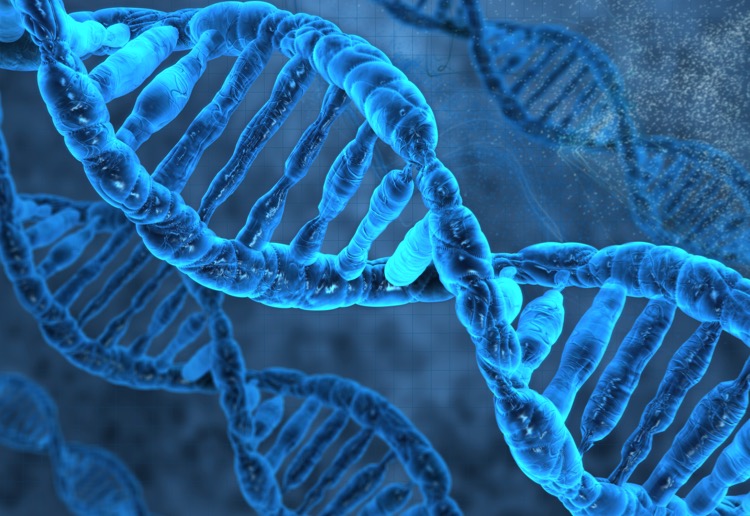Becoming a parent is signified by that life-changing moment when your baby is born into this world.
You cradle your baby in your arms and form and unbreakable bond as parent and child. A child who carries your DNA, who will grow to be a reflection of you in so many ways, a child who you will nourish, protect and care for from this moment on.
But what if I said, this parenting gig, starts well before this moment.
Being the best Mum, in fact being the best parent, begins well before birth. I love the saying “when you were just a twinkle in your Fathers eye”. It is at this moment that you truly start being a parent. It is at this moment that you are already carrying all the genetic material that has the potential to become your future child.
The nourishing, the nurturing, the care and protection starts now.
From the moment you start trying to conceive, you already have a significant influence over your child’s long-term health. This is because our DNA is not as set in stone as you may think. Both the egg and sperm follow a 90 day cycle as they develop from immature follicle to mature gamete ready for fertilisation. It is during this window that you have the opportunity to alter and improve your DNA.
Our genes are sensitive to the environment to which they are exposed.
This means that genes can change the way they are expressed depending on the environmental conditions in which they develop. These changes are known as epigenetic changes.
Factors such as stress, alcohol and smoking, availability of macro and micronutrients and your antioxidant status significantly impact this precious environment, permanently altering the expression of the genetic material that you pass on to your child.
We have long known that these changes occur in utero. For this reason, pregnancy health, especially in the early growth stages has long been impressed upon us.
However, research now shows that these changes begin occurring well before you even fall pregnant.
Healthy diet and lifestyle factors combined with the availability of important nutrients during these 90 days, encourages positive epigenetic changes. These changes not only improve your chances of conceiving and carrying a healthy baby, they have a lasting impact on health outcomes and disease predisposition of your future child.
So what are the top 5 things you can do to improve your DNA?
1. Eat plenty of ‘nude’ food
Much of the food we eat these days carries a barcode. It’s processed and packed, shipped and stored before it even reaches the shelves for us to purchase. This processing reduces the nutrient content and often carries additional additives and preservatives. This reduces the nutritional value and can add to the oxidative process in the body as we attempt to metabolize these foreign chemicals.
If you’re shopping in the supermarket, keep to the outside aisles as much as possible. That’s where you’ll find all the good stuff, fruit, veg, bread and dairy. Even better, utilise your local fruit and vegetable store or, even better, grab some fresh organic produce from your farmers market, or grow it yourself!
2. Take a prenatal multivitamin
Vitamins and minerals play a critical role in the development and expression of our DNA.
In fact, adequate DNA growth and development cannot occur without the presence of certain key nutrients. In an ideal world, we would all have access to nutrient dense fruits and vegetables picked fresh from our back garden. In reality, this isn’t the case. Especially vital DNA supportive nutrients such as folate are extremely unstable. This means that most is lost during any cooking or processing.
These days, much of our processed food is fortified with folic acid in attempts to compensate for the lack of folate. Unfortunately, folate and folic acid are not the same. Folic acid is a synthetic supplemental form of folate.
Around 50% of people struggle to adequately metabolise folic acid into useable folate.
Ideally look for a good prenatal supplement that provides folinic acid alongside folic acid to help boost your folate uptake during this crucial time.
3. Reduce stress
Stress has a huge impact on just about every system in our body, including the reproductive system.
Studies show a positive correlation between highly stressed individuals and the stress and anxiety predisposition in the infant.
If you are finding stress an issue in your life, employ techniques to help reduce your stress. Try meditation, yoga, exercise, reading, journal writing, mindfulness practice or seek professional support if you need. Find what works for you and stick with it.
4. Sleep
Multiple studies confirm that shift workers have more difficulty falling pregnant than those working 9 – 5. Lack of sleep or disrupted sleep has a significant impact on the expression of our DNA.
Aim for 8 hours of quality sleep per night. Having trouble? Try switching off the TV or screen at least half an hour before you go to bed, avoid using technology in the bedroom, have relaxing herbal tea at night and try meditation or reading before bed.
5. Exercise
Not only does exercise improve metabolism, increase strength and energy, it’s also a great way to reduce stress.
Most professionals will agree that 30 minutes of exercise 3 – 4 times per week is a great start to improving your DNA health, however there is no exact definition as to how many hours or what intensity suits each individual. For those who are already doing more than this, great. Although if you are exceeding 7 hours of high intensity exercise per week, I would advise to cut back.
And when should you start employing these DNA enhancing strategies? Now! If you’re thinking of starting a family, it’s never too early to start nurturing the precious DNA that has the potential to become your future child now.
However, if you’re looking for an exact time frame, the most crucial time for influencing the genetic material you pass on to your child is during the 90 day growth cycle of the egg and sperm. So ideally, start making positive changes at least 3 months prior to conceiving.
Although society may only recognise you as a parent from the moment your child is brought into this world, being the best parent starts well before birth.
Do you know any other things that will help improve the DNA you pass on to your children? Share with us below!
Image source Shutterstock.





















-

-
-
meedee said
- 08 Jan 2022
-

-
-
rovermum said
- 10 Nov 2016
-

-
-
mom134803 said
- 09 Nov 2016

-

-
-
ella12 said
- 08 Nov 2016
-

-
-
mom101628 said
- 07 Nov 2016
-

-
-
mom90758 said
- 05 Oct 2016
-

-
-
mom93821 said
- 30 Sep 2016
-

-
-
mom160421 said
- 29 Sep 2016
Post a comment10:31 am
8:47 am
2:54 am
11:21 am
8:57 pm
9:31 pm
6:51 am
3:25 pm
To post a review/comment please join us or login so we can allocate your points.